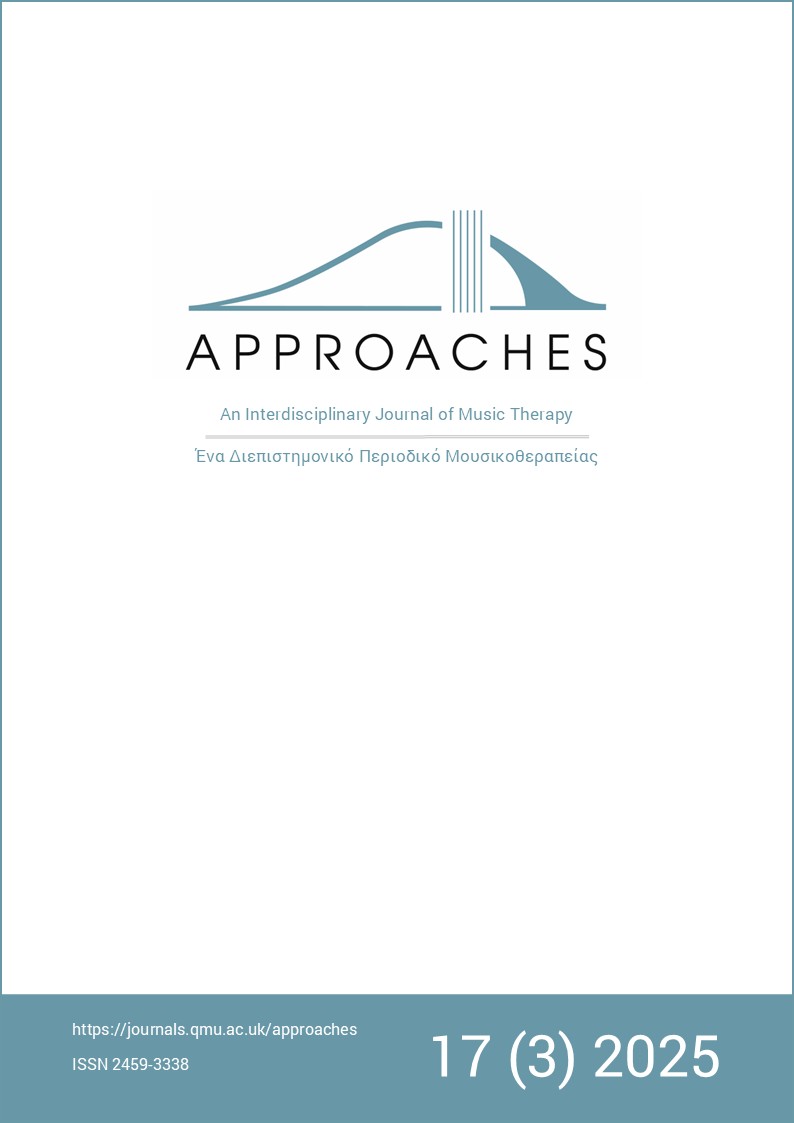A qualitative pilot study examining Tibetan bowls and monochord sound meditation with adults with mental health conditions and intellectual disabilities
DOI:
https://doi.org/10.56883/aijmt.2024.320Keywords:
Tibetan bowls, singing bowls, monochord, sound meditation, sound therapy, vibrational sound, sound bath, mental health, developmental disabilitiesAbstract
Tibetan bowls and monochords are millennia-old instruments used for spiritual and therapeutic purposes. In the last few decades, there has been growing interest in the use of these instruments in meditation and therapeutic settings. Nevertheless, they are still rarely used in music therapy in the Western world, either because of technical difficulties or musical or cultural biases. The purpose of this pilot study was to examine the experiences of adults with mental health conditions and intellectual disabilities during sound meditation sessions using Tibetan bowls and a monochord. In this qualitative pilot, a group of six psychiatric inpatients participated in seven weekly sound meditation sessions over eight weeks that implemented Tibetan bowls and the monochord combined with meditation. Semi-structured interviews were conducted after each session to capture participants’ reflections on their experiences. The interview data was analysed using thematic analysis. Three main themes emerged: physical sensations, experiences of emotions, and visual experiences. The sounds of the Tibetan bowls and the monochord helped participants relax and evoked a wealth of emotions and mental imagery. These findings suggest that using these instruments with adults with mental health conditions and intellectual disabilities can foster relaxation, as well as heighten their awareness of physical sensations, feelings, and previous life events. Music therapists can thus integrate Tibetan bowls and the monochord into their skillset and use them during treatment sessions.
Downloads
Published
Issue
Section
License
Copyright (c) 2024 Harel Gal, Cochavit Elefant

This work is licensed under a Creative Commons Attribution-NonCommercial-NoDerivatives 4.0 International License.




